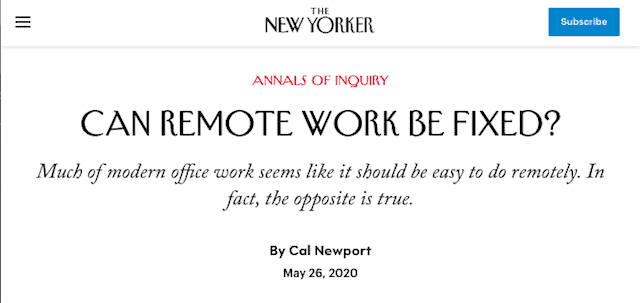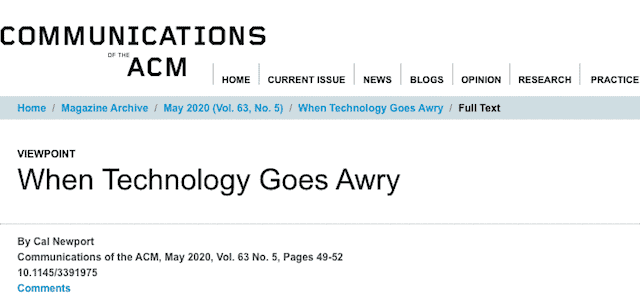
In 2012, I published a book titled So Good They Can’t Ignore You. It argued that “follow your passion” was bad career advice. I didn’t claim that passion was a problem, but instead argued that it was too simplistic to assume that the key to career satisfaction was as easy as matching your job to a pre-existing inclination. For many people, this slogan might actually impede their progress down the more complicated path that leads to true satisfaction.
One of the interesting things I uncovered in my research was that the term “follow your passion” didn’t really emerge in the context of career advice until the 1980s. Where did it come from? I argued that two critical trends converged during this period.
First, the unionized industrial work that characterized mid-century American economic growth gave way to a less rooted knowledge sector. Workers who might have previously taken a job at whatever factory happened to be located in their hometown might now be forced to travel cross-country in search of a suitable office position.
For the first time, the question of what you wanted to do for a living became pervasive — a shift captured well by the emergence in the early 1970s of Richard Bolles’ seminal career guide, What Color is Your Parachute: one of the original books to help readers identify which professions suit their personality and interests. It’s important to remember that this was a radical notion. “[At the time,] the idea of doing a lot of pen-and-paper exercises in order to take control of your career was regarded as a dilettante’s exercise,” Bolles later explained.
The second force at play was Joseph Campbell, the polymath literature professor who was heavily influenced by Carl Jung, and popularized the hero’s journey as a foundational mythology that emerges in many cultures. In 1988, PBS aired a multi-part interview with Campbell hosted by Bill Moyers. This wildly popular series introduced the concept of following your bliss, which Campbell, who read Sanskrit, had adapted from the ancient Hindu notion of ananda, or rapture.
Combine these two forces — a sudden need to figure out what you wanted to do for a living with Campbell’s mantra — and a strange, secularized, bastardized hybrid emerges: the key to career happiness, we decided as the 80s gave way to the 90s, was to follow your passion.






